Most hunters understand the excitement of duck hunting from a boat, but it’s crucial to prioritize safety. To ensure a secure and enjoyable experience, you need to know the safest positions for yourself and your hunting partner. This blog post will guide you through optimal seating arrangements, equipment placement, and safety practices, helping you minimize risks while maximizing your success in the field. Whether you are a seasoned hunter or a beginner, following these guidelines will keep you safe as you navigate the waters in pursuit of your quacking quarry.
Key Takeaways:
- Positioning: The safest position for duck hunters in a boat is to sit in opposite corners to maintain balance and avoid accidents.
- Firearm Awareness: Always keep the firearm pointed in a safe direction, away from fellow hunters and the boat itself.
- Personal Safety Gear: Use life jackets and appropriate safety gear to minimize risks when out on the water.
- Communication: Establish clear communication signals and plans in case of emergencies to ensure safety between hunters.
- Environmental Awareness: Be conscious of weather conditions and surrounding wildlife to avoid dangerous situations while duck hunting.
Importance of Safety in Duck Hunting
A comprehensive understanding of safety in duck hunting is vital to ensure both enjoyable and responsible experiences in the field. By prioritizing safety, you not only protect yourself but also your fellow hunters, creating a more secure environment. Awareness of safety measures reduces the risk of accidents and fatalities, ensuring that your duck hunting adventure is memorable for all the right reasons.
Common Risks Involved
Risks in duck hunting include accidental discharges of firearms, drowning, exposure to harsh weather conditions, and the possibility of vehicle accidents while transporting gear. These hazards can pose serious threats not just to you, but to those around you. Recognizing and understanding these risks is crucial for effective prevention and ensuring a safe hunting experience.
Safety Protocols for Hunters
Involved in ensuring your safety during duck hunting are several necessary protocols that you must follow. Familiarize yourself with firearm safety rules, always treat your weapon as if it is loaded, and never point it toward anyone. Wear personal flotation devices while in a boat, and ensure your boat is in good working condition. Communicate your hunting plans to someone, and consider wearing bright colors for visibility.
Duck hunting safety protocols are designed to address the unique challenges of the environment and the equipment used. Always maintain a clear line of sight when aiming, and avoid shooting at low-flying waterfowl. Before heading out, check weather conditions, as sudden changes can affect safety. Additionally, having a first aid kit on hand and knowing basic first aid can make a significant difference in case of an emergency. By staying informed and prepared, you can enhance your safety and that of those around you while enjoying your duck hunting experience.
Boat Positioning for Safety
While navigating the waters during a duck hunting trip, the positioning of your boat plays a crucial role in ensuring safety. It’s imperative to assess the environment and choose a stable and balanced spot, avoiding heavy wind exposure or rough waters. Always make sure that both hunters are aware of their surroundings and maintain a solid footing within the boat to prevent any accidents during your hunt.
Recommended Positions for Hunters
Positions that maximize stability are vital for your safety while hunting from a boat. Ideally, you should position yourselves on opposite sides of the boat or in designated seating areas. This not only helps maintain balance but also minimizes the risk of tipping over. When preparing to shoot, adjust your position accordingly, ensuring that neither hunter obstructs the other’s aim.
Impact of Boat Stability on Safety
Positions that ensure your boat remains stable directly influence your overall safety while duck hunting. A stable boat allows for quick movements and reduces the risk of tipping, especially when encountering waves or strong currents. Be mindful of your gear’s placement and its effect on the boat’s balance as well.
Hunters must recognize that any shift in weight can affect the boat’s stability. Keep gear evenly distributed and secured to avoid sudden movements that could lead to an imbalance. Familiarize yourself with the boat’s limits and avoid shifting your position abruptly, as this creates unnecessary risks. By prioritizing stability through careful boat positioning, you can maintain a safe and enjoyable hunting experience out on the water.
Use of Appropriate Gear
Unlike other outdoor activities, duck hunting in a boat requires specific gear to ensure your safety and the safety of those around you. Proper clothing, such as waterproof jackets and boots, helps protect you from the elements while also keeping you comfortable. Additionally, wearing layered clothing allows for better temperature regulation, ensuring you stay warm without overheating during active hunts. Always make sure your gear is suitable for water exposure, as this will give you peace of mind as you focus on the hunt.
Life Jackets and Safety Equipment
To stay safe while duck hunting, it is important to wear a life jacket at all times. Life jackets not only provide flotation in case of an accident but also increase visibility, which is crucial in low-light conditions. Ensure that your life jacket is properly fitted and complies with safety regulations. Additionally, keep safety equipment on board, such as a first-aid kit, distress signals, and a reliable communication device, to be prepared for any emergencies that may arise while out on the water.
Firearm Safety Practices
Jackets can help keep you warm and dry while duck hunting, but ensuring your firearm is handled safely is paramount. Always treat your firearm as if it is loaded, even when you believe it is not. Before entering the boat, make sure the firearm is unloaded, and store it properly in a secure case while you navigate the waters. When it’s time to take a shot, aim carefully and only pull the trigger when you have a clear and safe target in your sights.
Practices around firearm safety are crucial for a secure hunting experience. Always maintain a safe distance from fellow hunters, and never point your firearm at anyone, regardless of whether it’s loaded. Familiarize yourself with your specific firearm’s operating mechanisms, and ensure that you are competent in handling it under various conditions. Communicate clearly with your hunting partner, so both of you are aware of each other’s locations and intentions. Following these guidelines will help create a safer environment for you and your hunting companions.
Environmental Considerations
Many factors impact the safety of your duck hunting expedition. Understanding the environment not only enhances your chance for success but also ensures you and your hunting partner remain safe. Be aware of wildlife regulations, protected areas, and seasonal trends that may affect the ducks’ behavior and habitat. Always respect nature and practice ethical hunting, as this leads to a sustainable ecosystem that benefits both you and future hunters.
Weather Impact on Hunting Safety
An unpredictable weather forecast can pose significant risks during your hunting trip. Always consult reliable weather updates before heading out, as severe weather conditions such as storms, strong winds, or sudden temperature drops can jeopardize your safety and that of your hunting partner. Dress appropriately in layers, and be prepared for changing conditions to ensure a successful and safe hunt.
Navigating Water Hazards
Hunting in natural water bodies can introduce unexpected hazards that require careful navigation.
Safety is paramount when navigating water hazards like submerged logs, strong currents, and uneven terrain. Always scout your route beforehand if possible, and be cautious while moving through shallow waters. Use your boat and equipment wisely, ensuring they are well-maintained and appropriate for the conditions. Stay alert to your surroundings, and consider keeping personal flotation devices on hand to enhance safety during your duck hunting adventure.
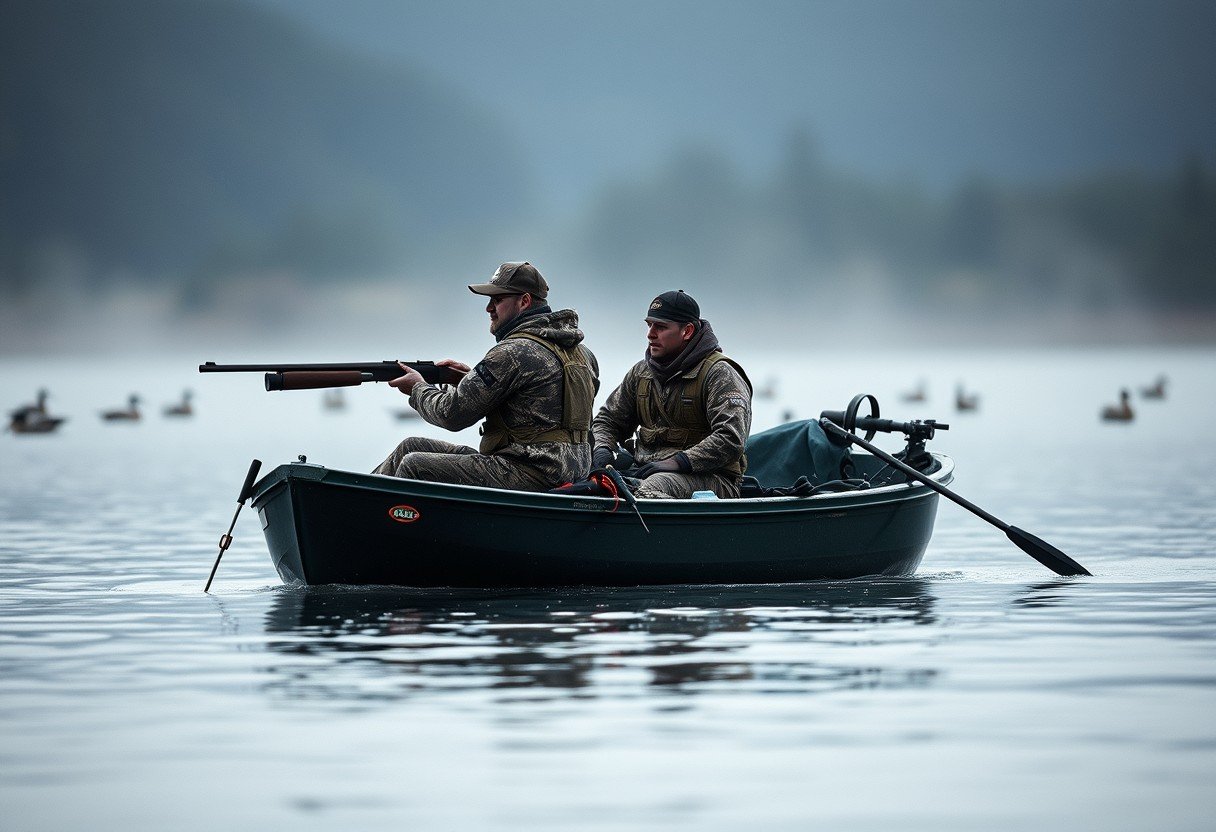
Communication Between Hunters
Now that you understand the importance of staying safe while duck hunting, effective communication between hunters is crucial to maintaining that safety. Clear and concise communication helps prevent accidents, ensures everyone is on the same page, and enhances teamwork when it comes to hunting. Creating a shared understanding of signals and safety measures can significantly reduce the risk of injury while you enjoy your time outdoors.
Signaling Methods
One effective way to communicate in the field is through signaling methods. Establishing specific hand signals, such as raising a flag or using a flashlight, can help you convey messages over long distances or in poor visibility conditions. By agreeing on these signals before you set out, you can ensure that both hunters are aware of each other’s intentions and can act accordingly.
Establishing Safety Rules
With any hunting trip, establishing safety rules is crucial. Make sure both you and your hunting partner are aware of the guidelines you set in place to ensure a safe experience. This may include rules about weapon handling, positioning in the boat, and taking turns in the shooting order to avoid accidents.
The rules you establish should cover aspects such as always pointing firearms in a safe direction, keeping the safety on when not firing, and maintaining effective communication regarding retrieval and movement. Discuss these safety rules thoroughly before heading out on the water, and ensure that both you and your partner agree on their importance. Clear safety protocols increase the likelihood of a safe and enjoyable hunting experience for both hunters. Note, safety should always be the priority when duck hunting together.
Training and Preparation
To ensure a safe and successful duck hunting experience, proper training and preparation are paramount. Familiarizing yourself with hunting regulations, safe firearm handling, and understanding the behavior of ducks can significantly enhance your skills and confidence. You should prioritize practice sessions that improve your shooting accuracy and navigation skills in a boat, as these elements are critical in maintaining safety while out in the field.
Importance of Hunter Education
With hunter education courses available in most regions, it is crucial to understand that these programs equip you with imperative safety knowledge, laws, and ethical hunting practices. Completing this training not only promotes responsible hunting but also fosters a safe environment for you and your fellow hunters.
Practicing Safe Hunting Techniques
An imperative aspect of being a responsible hunter is consistently practicing safe hunting techniques. This includes understanding gun safety, ensuring the safety of your hunting partner, and effectively communicating throughout your trip. You must also familiarize yourself with environment-specific variables, such as weather conditions and potentially hazardous terrain.
Preparation is key to practicing safe hunting techniques. Always treat your firearm as if it were loaded, and ensure it is pointed in a safe direction. Practice clear communication with your partner about movement and shooting zones, particularly in a confined space like a boat. Regularly review safety protocols, and wear appropriate safety gear, such as life jackets. Additionally, refrain from overreaching and extend your shot only when it is safe to do so. By embedding these practices into your hunting routine, you maximize safety and enjoyment for yourself and others.
Final Words
Taking this into account, the safest position while duck hunting in a boat involves several key factors. You should sit facing forward, keeping your head and upper body inside the boat to reduce the risk of accidental falls or injuries. Ensure that your firearms are pointed downward and secured when not in use. Lastly, wearing life jackets and keeping communication open with your hunting partner will enhance safety. By following these guidelines, you can enjoy a safer and more successful duck hunting experience.
FAQ
Q: What is the safest position for two hunters in a boat while duck hunting?
A: The safest position for two hunters in a boat is to sit facing the front of the boat. This allows both hunters to have a clear view of incoming ducks and minimizes the risk of accidental discharges from their firearms. Additionally, staying seated helps maintain the boat’s stability, reducing the risk of capsizing.
Q: Should hunters use personal flotation devices (PFDs) while duck hunting in a boat?
A: Yes, it is highly recommended that all hunters wear personal flotation devices (PFDs) while on the water. PFDs greatly increase safety, especially in the event of an accidental fall into the water. All hunters should ensure their PFDs are approved by the U.S. Coast Guard and fit properly.
Q: How should hunters position their firearms while in the boat?
A: Hunters should keep their firearms pointed in a safe direction at all times, ideally towards the water. They should also ensure that their firearms are securely stored when not in use and only handled when preparing to shoot. Keeping the safety on until ready to fire is vital to prevent accidental discharges.
Q: What are some tips for maintaining balance while duck hunting in a boat?
A: To maintain balance, hunters should distribute their weight evenly in the boat. They can crouch down when the boat is moving to lower their center of gravity and should avoid sudden movements that could tip the boat. It’s also important to keep equipment and gear organized to prevent shifting weight while hunting.
Q: How can hunters ensure they have a safe and enjoyable experience while duck hunting in a boat?
A: To ensure a safe and enjoyable experience, hunters should always check weather conditions before heading out, ensure they have the proper licenses and permits, and communicate a clear plan with their hunting partner. It’s crucial to have a reliable means of communication, such as a cell phone or marine radio, as well as a first aid kit on board. Lastly, hunters should be well-prepared with appropriate gear for hunting conditions, including waterproof clothing, waders, and proper footwear.

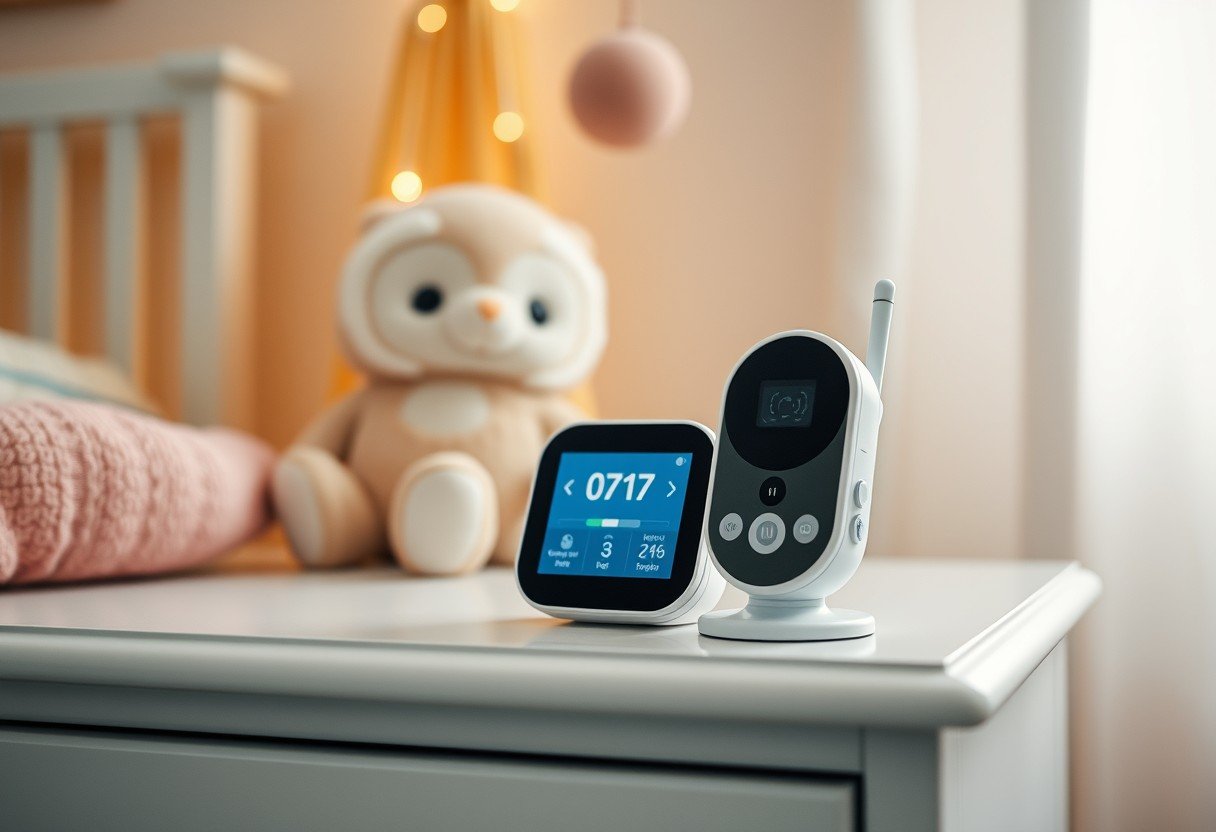

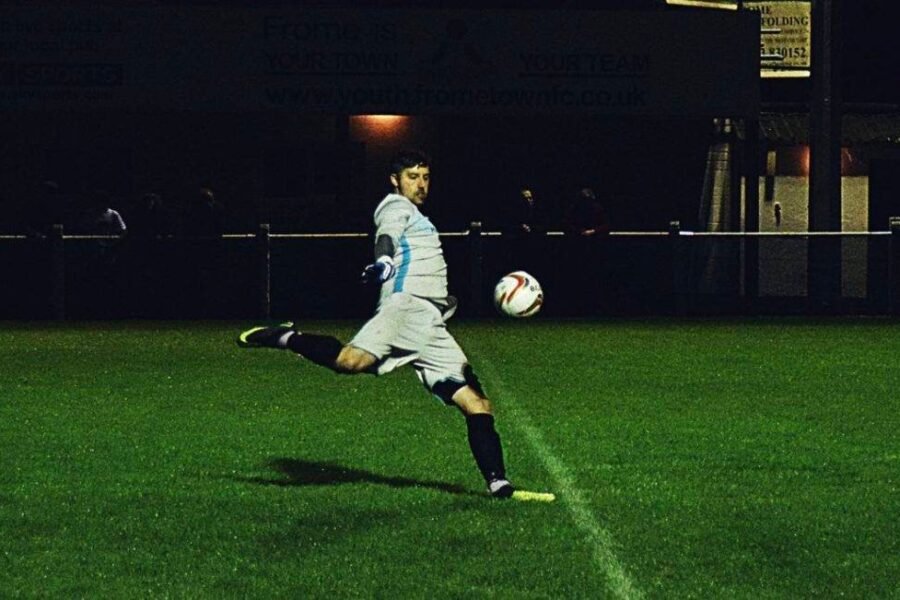

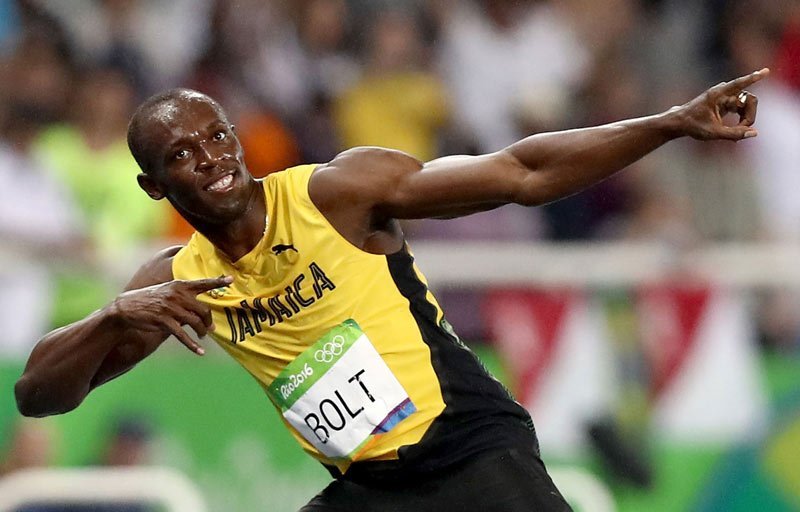

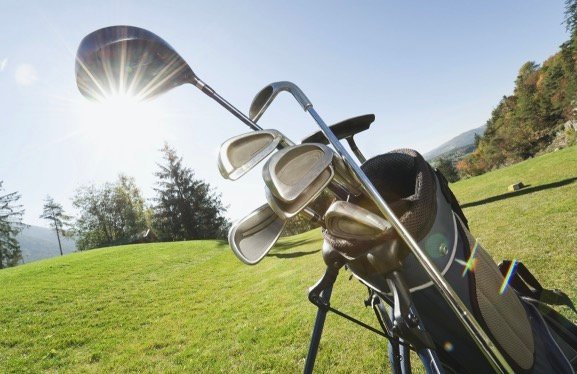
Leave a Comment